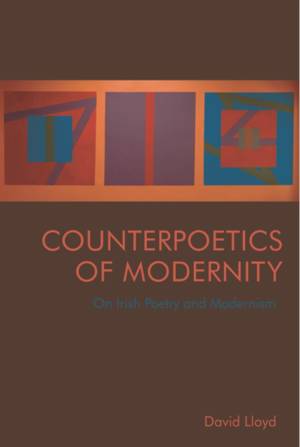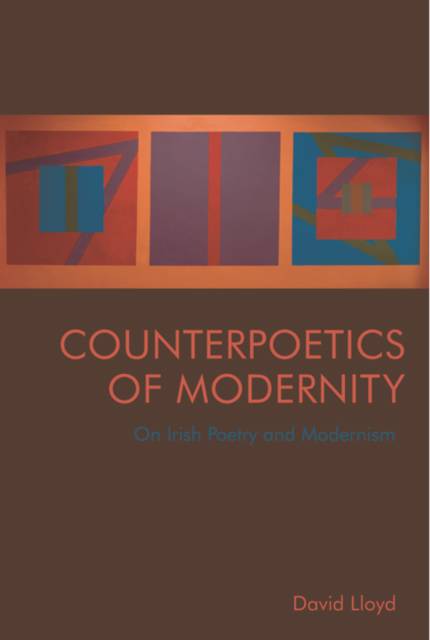
- Retrait gratuit dans votre magasin Club
- 7.000.000 titres dans notre catalogue
- Payer en toute sécurité
- Toujours un magasin près de chez vous
- Retrait gratuit dans votre magasin Club
- 7.000.0000 titres dans notre catalogue
- Payer en toute sécurité
- Toujours un magasin près de chez vous
Description
This study puts contemporary Irish poetry in dialogue with major debates and concerns of European and American poetics. David Lloyd tracks the traits of Irish poetic modernism, from fragmentation to the suspicion of representation, to nineteenth-century responses to the rapid and unsettling effects of Ireland's precocious colonial modernity, such as language loss and political violence. He argues that Irish poetry's inventiveness is driven by the need to find formal means to engage with historical conditions that take from the writer the customary certainties of cultural continuity, identity and aesthetic or personal autonomy, rather than by poetic innovation for its own sake. This reading of Irish poetry understands the innovative impetus that persists through Irish poetry since the nineteenth century as a counterpoetics of modernity. Opening with chapters on Mangan and Yeats, the book then turns to detailed discussions of Trevor Joyce, Maurice Scully, and Catherine Walsh; major Irish contemporary poets never before the focus of a book-length study.
Spécifications
Parties prenantes
- Auteur(s) :
- Editeur:
Contenu
- Nombre de pages :
- 232
- Langue:
- Anglais
Caractéristiques
- EAN:
- 9781474489805
- Date de parution :
- 17-03-22
- Format:
- Livre relié
- Format numérique:
- Genaaid
- Dimensions :
- 156 mm x 234 mm
- Poids :
- 503 g

Les avis
Nous publions uniquement les avis qui respectent les conditions requises. Consultez nos conditions pour les avis.






